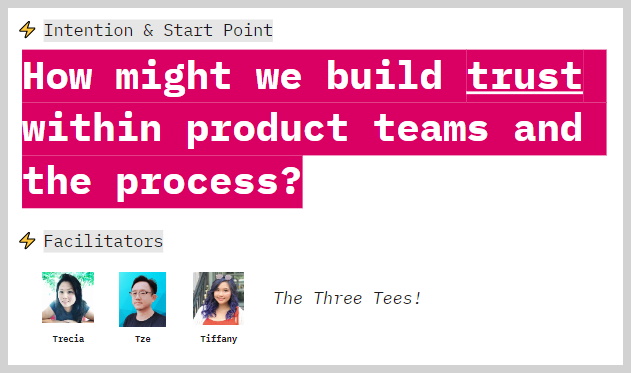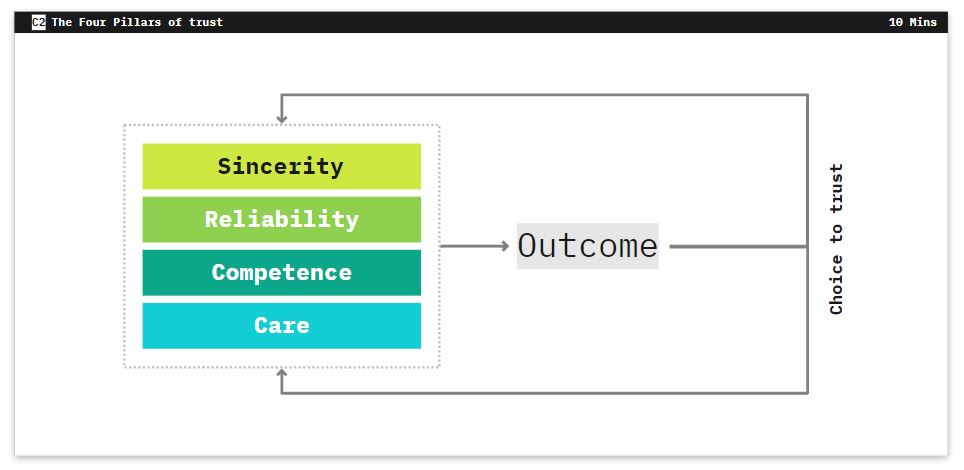PTL #3 - Trust
“How might we build trust within product teams and the process?”

What we learnt:
- Understand different perspectives of trusts and what defines trust
- Understand the four components of trust
- Understand the importance of trust in collaborating towards a shared outcome
- Apply the four components of trust to a professional situation
Defining Trust
- Trust is defined as choosing to risk making something you value vulnerable to another person’s actions.
- People act on their assessment of your trustworthiness. Your best intentions can’t change their opinion. Only by changing what you say and how you act can you affect how others assess your trustworthiness.
4 Pillars of Trust

- Sincerity when you say what you mean and mean what you say. Your opinion are valued and backed up by sound thinking and evidence.
- Competence is when you have the ability to do what you do or propose to do. You have the required capacity, skill, knowledge and resources to do a task or job.
- Reliability is when you keep your promises and meet the commitments you make over and over again.
- Care is when you have the other person’s interest in mind when you make decisions and take actions. Care is in some ways the most important for building lasting trust. When people believe you hold their interest in mind, they will extend their trust more broadly to you.
Context of Trust
- Trust is required to coordinate action within a organization (e.g. team, company, family, social group) towards a specific shared outcome.
- Coordinating action is based on promises made and kept. In turn, we constantly assess and are assessed on the promises we make and our ability to keep them.
- Making and keeping promises is how organisations work and is how we are constantly assessing others and being assessed: will you behave as expected?
- The act of building trust is specific to a particular context, that is, what are we building TRUST for? The “Trust Battery” is a summary of all interactions, commitments and promises to date.
- The battery drains over time if we leave it idle. The relationship needs to be nurtured even when you’re not collaborating.
- To recharge battery, you have to do different things in the future. Only new actions and attitudes count.